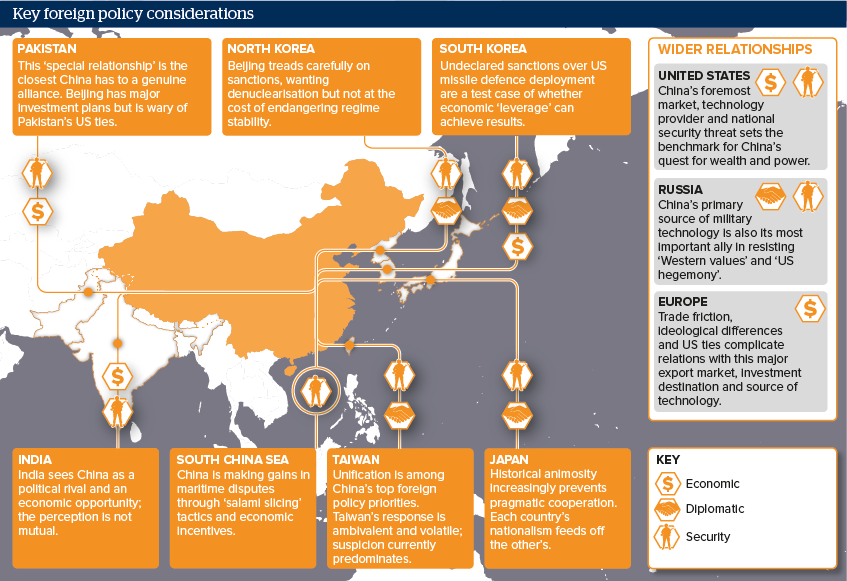Economics and nationalism shape China’s foreign policy
China is a rising power and potential superpower, the only country that plausibly could one day equal the United States
Source: Oxford Analytica
Outlook
China’s glowing global interests expose it to new risks and potential for confrontation when its interests conflict with those of established powers. However, domestic concerns dominate Beijing’s policy agenda and China’s foreign policy is extremely risk-averse, shunning military involvement overseas.
A stable international environment conducive to economic development is a priority of Chinese foreign policy -- however, this comes second to regime security and territorial ‘core interests’. China’s policymakers and public see the world through the lens of the country’s experiences as a victim of imperialism, predisposing them to uncharitable interpretations of foreign behaviour and extreme sensitivity to perceived slights.
Impacts
- The West’s cultural disposition to regard China’s political system as fundamentally illegitimate makes a measure of mistrust unavoidable.
- China’s ‘core interests’ on its borders are more likely flashpoints for confrontation than its growing global interests.
- China-led institutions look unlikely to challenge Western-led institutions head-on but could dilute their importance.
- Economic or political crises at home would make Chinese foreign policy unpredictable and perhaps aggressive.
